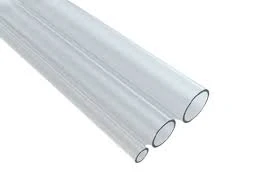Dec . 12, 2024 09:39 Back to list
pp panel
Understanding PP Panel A Comprehensive Overview
In the realm of industrial applications, particularly in manufacturing and construction, the term “PP panel” refers to a specific type of panel increasingly used due to its versatility and efficiency. PP, or polypropylene, is a thermoplastic polymer that has gained significant interest in various industries for its unique characteristics. This article aims to provide a comprehensive overview of PP panels, covering their properties, advantages, applications, and market prospects.
What is PP (Polypropylene)?
Before diving into PP panels, it’s essential to understand polypropylene. Discovered in the 1950s, polypropylene is one of the most widely produced commodity plastics. It is known for its excellent chemical resistance, lightweight nature, and toughness. Polypropylene can be easily molded and shaped, making it ideal for various applications from automotive components to consumer goods.
Characteristics of PP Panels
PP panels are made by extruding polypropylene into sheets or panels that can be used for numerous applications. The term PP may refer to a specific type of configuration or formulation of the polypropylene used, which impacts the panel's performance characteristics. Some common attributes of PP panels include
- Lightweight Polymers like polypropylene typically have a low density, making PP panels lightweight and easy to handle. - Durability These panels are noted for their resistance to impact and wear, which increases their longevity in applications that face rough conditions. - Chemical Resistance PP panels are resistant to various chemicals, including acids and bases, which allows them to be used in environments where exposure to such substances is expected. - Moisture Resistance Polypropylene does not absorb water, making PP panels an excellent choice for humid environments or applications where moisture is a concern. - Thermal Stability They can withstand a wide range of temperatures, allowing for use in both high and low-temperature applications.
Advantages of PP Panels
pp panel

The advantages of PP panels make them an attractive option for manufacturers and builders alike. Here are several key benefits 1. Cost-Effective Compared to other materials, polypropylene is relatively inexpensive, which translates to lower costs for projects that utilize PP panels. 2. Versatile Usage Due to their customizable nature, these panels can be designed in various shapes, sizes, and colors, catering to diverse design requirements. 3. Environmentally Friendly With an increasing focus on sustainable materials, many polypropylene formulations are recyclable, contributing to a circular economy. 4. Ease of Fabrication The lightweight nature and ease of handling enable quick and easy fabrication, minimizing labor costs and time.
Applications of PP Panels
The versatility of PP panels allows them to be used in a wide array of industries, including - Construction Used for wall cladding, ceilings, and partitions due to their lightweight and durable nature. - Packaging These panels are often seen in the packaging industry, especially for creating containers and boxes because they protect contents while being lightweight. - Automotive Used in car interiors, undercarriage components, and dashboard elements due to their resistance to wear and chemical exposure. - Healthcare Employed in the medical field for equipment and storage solutions, where cleanliness and chemical resistance are critical. - Agriculture Used in creating greenhouse panels and other applications requiring durability and weather resistance.
Market Prospects
As industries keep moving toward efficient and sustainable materials, the demand for PP panels is expected to grow. The increase in construction activities globally, coupled with the push for sustainable building practices, suggests a bright future for this material. Additionally, the rising trend toward lightweight materials in automotive and aerospace manufacturing is likely to bolster the market further.
Conclusion
PP panels exemplify the intersection of versatility, durability, and sustainability in modern industrial solutions. The unique properties of polypropylene combined with innovative panel designs allow these materials to thrive across various sectors. As industries continue to evolve, the relevance and application of PP panels will undoubtedly expand, promising an exciting future for manufacturers and consumers alike.
-
High-Quality PPR Pipes and Fittings Durable ERA PPR & PVC PPR Solutions
NewsJul.08,2025
-
Black HDPE Cutting Board - Durable, Non-Porous & Food Safe HDPE Plastic Cutting Board
NewsJul.08,2025
-
High-Quality CPVC Panel Durable HDPE & PVC Panels Supplier
NewsJul.08,2025
-
Double PE Welding Rod Supplier - High Strength, Durable & Versatile Welding Solutions
NewsJul.07,2025
-
High-Quality PVC-O Pipe Supplier Durable 75mm PVC Pipe & Connections Leading PVC Pipe Company
NewsJul.07,2025
-
HDPE Drainage Pipe Supplier – Durable & Corrosion-Resistant Solutions
NewsJul.06,2025

